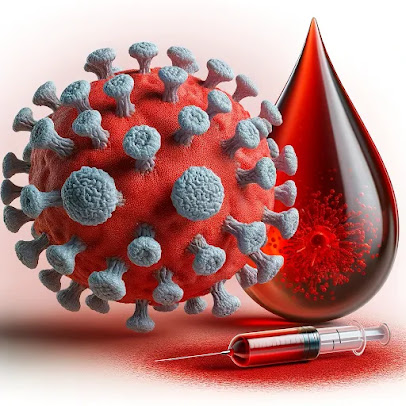Blood Donation Decline Due To COVID
The COVID-19 pandemic has had a significant impact on blood donation worldwide. Blood donation centers and blood banks have seen a significant decline in the number of blood donations as a result of the pandemic, which has led to a shortage of blood products. In the early months of the pandemic, blood donation centers and blood drives were canceled or postponed due to lockdowns and social distancing guidelines, resulting in a sharp decline in blood donations. According to the American Red Cross, they experienced a significant decline in blood donations in March and April 2020, resulting in a shortage of nearly 200,000 blood products.Reasons for Blood Donation Decline
Fear of COVID-19: One of the primary reasons for the decline in blood donations is the widespread fear of contracting COVID-19. Potential donors are apprehensive about visiting blood donation centers or participating in blood drives, concerned about virus exposure. In response, blood donation centers have implemented stringent safety measures, including:
- Enhanced cleaning and disinfection
- Social distancing protocols
- Mandatory use of personal protective equipment (PPE), such as masks and gloves
Cancellation of Blood Drives: The enforcement of social distancing guidelines and lockdown measures has led to the cancellation of numerous blood drives and events. Schools, churches, and community centers, which are traditional venues for such drives, have faced closures or are operating at limited capacity, thereby hindering the organization of blood donation events.
Global Blood Shortages: The impact of the pandemic on blood donation has been global, with the World Health Organization (WHO) reporting shortages across many countries. These shortages pose significant risks for patients dependent on transfusions for life-saving treatments.
Continued Need for Blood Donations: Despite pandemic-related challenges, the demand for blood for surgeries, cancer treatments, and emergency care remains high. Blood donation centers are adopting additional safety protocols to protect donors and staff, urging healthy individuals to donate.
Efforts to Encourage Donation: To promote blood donation during the pandemic, centers have introduced measures such as:
- Online registration and appointment scheduling
- Incentives for donors, like gift cards or merchandise discounts
Reduced Demand and Supply Chain Disruptions: The postponement or cancellation of elective surgeries initially reduced the demand for blood. However, some areas saw increased demand due to COVID-19 related complications. Moreover, global travel restrictions and border closures disrupted the blood product supply chain, affecting availability in certain regions.
Operational Challenges: Additional safety measures required for blood collection and processing have impacted the efficiency of donation centers, resulting in:
- Longer wait times for donors
- Reduced blood collection capacity
Hospital Struggles with Blood Inventory: Hospitals faced severe shortages, resorting to splitting blood product units to extend supplies. Efforts were made to provide at least partial doses to those in need.
Loss of Long-Time Donors: Many regular donors have not returned to donate post-pandemic, leading to a decrease in the donor pool.
Ongoing Strains on Blood Supply: While there has been some recovery in the blood supply, challenges persist, particularly with the availability of O negative blood as of 2023.

